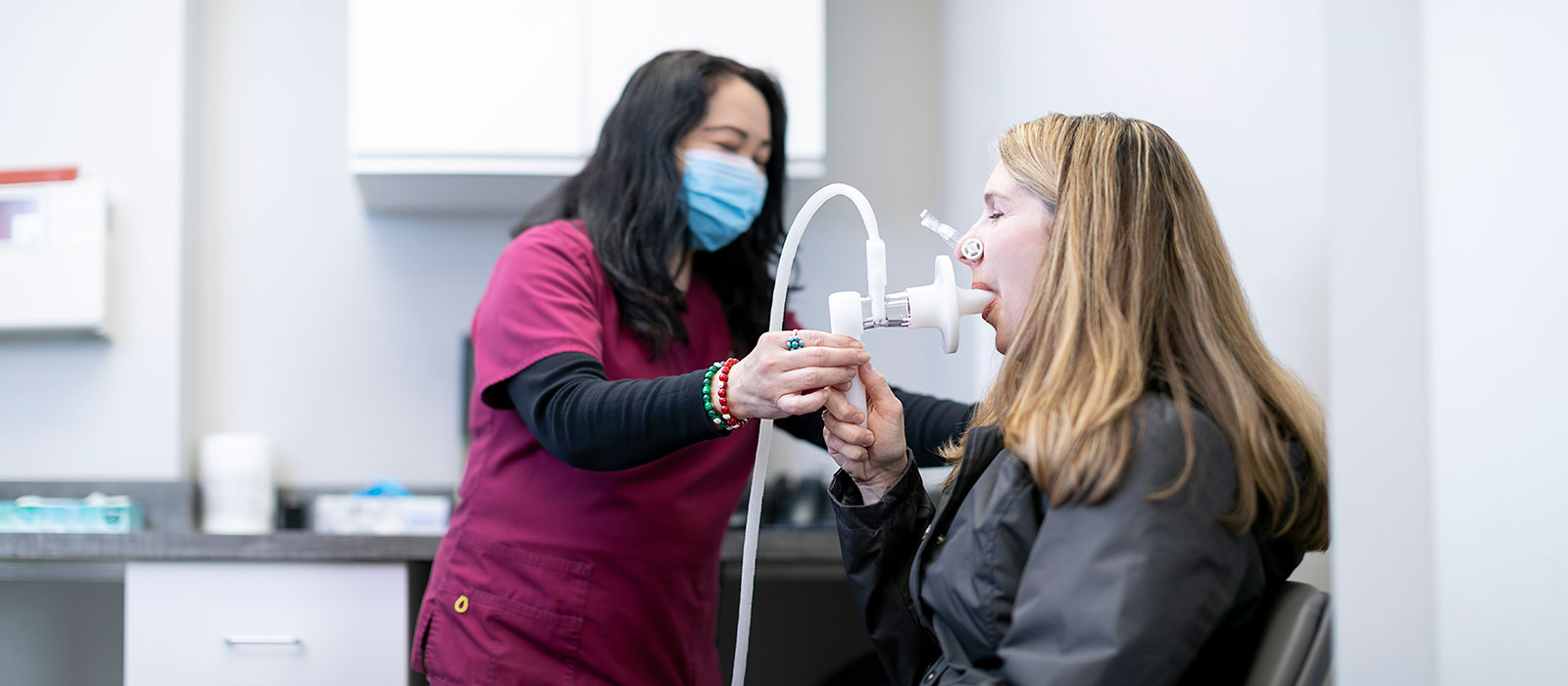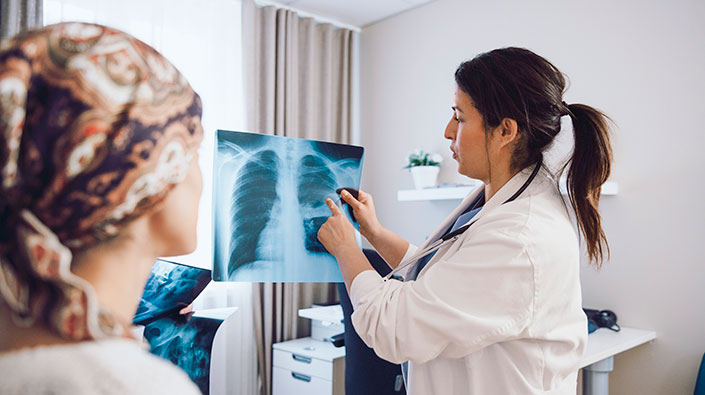Our services
Inova Pulmonology diagnoses and manages a variety of pulmonary diseases. We offer onsite diagnostic evaluation and provide longitudinal follow-up care as indicated.
Common pulmonary conditions include asthma, chronic obstructive pulmonary disease (COPD), bronchiectasis, interstitial lung diseases, pleural effusion, pulmonary infections, pulmonary nodules and chronic cough. Sleep disorder care also falls within the field of pulmonary medicine and is offered at Inova.

